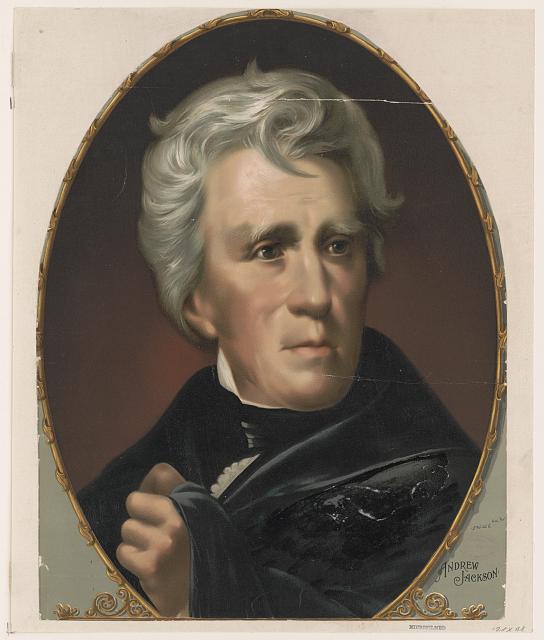
Andrew Jackson was a general during the War of 1812 and is best known for his victory in the Battle of New Orleans. He became a national hero as a result of his military successes and was elected to the presidency in 1828. Jackson’s time as president was marked by controversy, but he nonetheless left a lasting impact on American politics.
How the War of 1812 Began
The War of 1812 was fought between the United States and Great Britain. It began when the United States declared war on Great Britain on June 18, 1812. The main cause of the war was trade. The United States wanted to be able to trade with other countries without paying taxes to Great Britain. Great Britain also wanted to stop the United States from trading with France, which was at war with Great Britain.
On June 1, 1812, the U.S. Congress voted to declare war on Great Britain. President James Madison signed the declaration into law on June 18, 1812. The United States had a small army and navy, and it was not prepared for a war against a major European power like Great Britain.
The War of 1812 started badly for the United States. The American army was defeated in several key battles, including the Battle of Queenston Heights and the Battle of Detroit. In September 1814, British troops marched into Washington, D.C., and set fire to many of the government buildings, including the White House and the Capitol building.
Despite these early defeats, the United States managed to turn things around and win some important victories later in the war. These victories included the Battle of Lake Erie (September 10, 1813) and the Battle of New Orleans (January 8, 1815). The victory at New Orleans made Andrew Jackson a national hero, and he would go on to become one of America’s most famous presidents.
Andrew Jackson’s Success
When Andrew Jackson returned to Tennessee after the War of 1812, he was hailed as a hero. His successes in the war, including the Battle of New Orleans, had made him a household name. He was now being courted by both the Democratic and Whig parties as a potential candidate for president.
Jackson was reluctant to enter into politics, but he eventually agreed to run for president on the Democratic ticket in 1824. Unfortunately, he lost the election to John Quincy Adams. However, his strong showing in the election (he won more popular and electoral votes than any other candidate) demonstrated his appeal to voters and set him up for a successful run in 1828.
In 1828, Jackson ran again for president on the Democratic ticket. This time he was successful, defeating Adams in a landslide victory. Part of Jackson’s appeal was his image as a man of the people; he was seen as someone who understood and related to ordinary Americans. His victory in the War of 1812 only enhanced this reputation.
The Battle of New Orleans was a significant military victory for Jackson, but it also helped propel him to political fame. His successes in the war made him a national hero and launched him onto the path of becoming one of America’s most important presidents.
Impact of the Battle of New Orleans on Andrew Jackson’s Political Career
The Battle of New Orleans was a turning point in the War of 1812. It was also a turning point in the political career of Andrew Jackson.
Before the battle, Jackson was a relatively unknown general. He had won some important battles, but he was not yet a national figure. After the battle, however, he became one of the most famous men in America.
The victory at New Orleans made Jackson a hero. It also boosted his political career. In 1816, he was elected to the U.S. Senate from Tennessee. In 1824, he ran for president, although he lost to John Quincy Adams. In 1828, however, he ran again and this time he won, becoming the seventh president of the United States.
So, it is clear that the Battle of New Orleans had a significant impact on Jackson’s political career. Without his victories in that war, it is unlikely that he would have become as famous or as successful as he did.
How Andrew Jackson Leveraged His War Hero Status to Win the Presidency
As a war hero, Andrew Jackson was a popular figure in the early days of the republic. His military exploits, most notably his victory at the Battle of New Orleans, made him a national hero and helped him to win the presidency in 1828.
As president, Jackson used his war hero status to further his political agenda. He invoked his military experience to gain support for his policies, including the Indian Removal Act, which forcibly relocated Native Americans from their homelands in the southeastern United States. Jackson also used his wartime reputation to justify his aggressive actions against perceived threats to American security, such as the nullification crisis with South Carolina.
Andrew Jackson’s victories in the War of 1812 enabled him to become one of the most well-known political figures in American history. His reputation for leading victorious troops into battle, his skillful negotiating during peace treaties and his unwavering patriotism all contributed to making him a revered leader and opening doors for future presidential runs. Although he did not always make popular decisions, he left a legacy that continues to be remembered today.